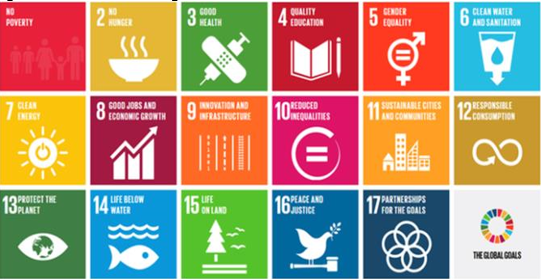|
Getting your Trinity Audio player ready...
|
Louisa Afful – Winneba
Ghana, a beacon of stability and growth in West Africa, has made significant strides in development over recent decades. Yet, like many developing nations, it faces challenges that require strategic planning and efficient use of resources. With the global agenda set by the United Nations’ Sustainable Development Goals (SDGs), Ghana has a comprehensive blueprint for achieving a sustainable and equitable future. However, given the constraints on resources and the need for impactful progress, a focused approach is essential. This article argues that Ghana should prioritize one sustainable development goal at a time, leveraging its strengths and resources effectively to create a ripple effect across other goals.
Among the 17 SDGs, “Quality Education” (Goal 4) stands out as a cornerstone for sustainable development. Education is not only a fundamental human right but also a powerful driver of economic growth, social stability, and technological innovation. By focusing on this goal, Ghana can lay a strong foundation for achieving other development objectives. Quality education equips individuals with the skills necessary to participate in the economy, fostering innovation and entrepreneurship. An educated workforce attracts investment and boosts productivity, essential for economic growth. Education is also a key tool in breaking the cycle of poverty. It enables individuals to secure better-paying jobs and improve their standard of living. Educated individuals are more likely to make informed decisions about health, nutrition, and family planning, contributing to the overall well-being of the community.
Furthermore, education promotes social inclusion and cohesion. It helps bridge gaps between different communities, fostering a sense of unity and shared purpose. Educated citizens are more likely to participate in civic activities and contribute positively to society. Focusing on education, especially for girls and women, addresses gender disparities. Educated women are more likely to participate in the workforce, make independent decisions, and contribute to the economy. Gender equality in education sets the stage for broader gender equality in society.
To make substantial progress on Quality Education, Ghana can undertake several strategic steps. Improving school infrastructure, especially in rural areas, to create a
conducive learning environment is essential. This includes building more schools, improving existing facilities, and ensuring access to clean water and sanitation. Investing in the professional development of teachers to ensure high-quality instruction is equally important. Continuous training programs and adequate remuneration can help attract and retain talented educators. Utilizing technology to enhance learning outcomes is another critical strategy. Digital tools and online resources can supplement traditional teaching methods, providing students with a broader range of learning opportunities. Developing and implementing policies that ensure inclusive education for all, including marginalized and vulnerable groups, is crucial. This includes children with disabilities, those in remote areas, and girls who face cultural barriers to education. Involving local communities in the education process is also vital. Encouraging parents and community leaders to participate in school management and support educational initiatives ensures that education is valued and supported at the grassroots level.
Prioritizing Quality Education will have a multiplier effect on other sustainable development goals. Educated individuals are more likely to make informed health choices, leading to healthier lifestyles and better health outcomes, thus contributing to the goal of Good Health and Well-being (Goal 3). A well-educated workforce is essential for innovation and productivity, driving economic growth, and thus supporting the goal of Decent Work and Economic Growth (Goal 8). Education is a powerful equalizer, reducing disparities within and among countries, thereby contributing to Reduced Inequalities (Goal 10). Moreover, education fosters awareness about environmental issues, encouraging sustainable practices and informed decision-making regarding climate change, supporting the goal of Climate Action (Goal 13).
Focusing on one sustainable development goal at a time, starting with Quality Education, is a pragmatic and strategic approach for Ghana. By channelling resources and efforts into improving education, Ghana can create a solid foundation for achieving broader sustainable development objectives. This focused strategy will ensure that progress is measurable, impactful, and sustainable, paving the way for a brighter future for all Ghanaians.


